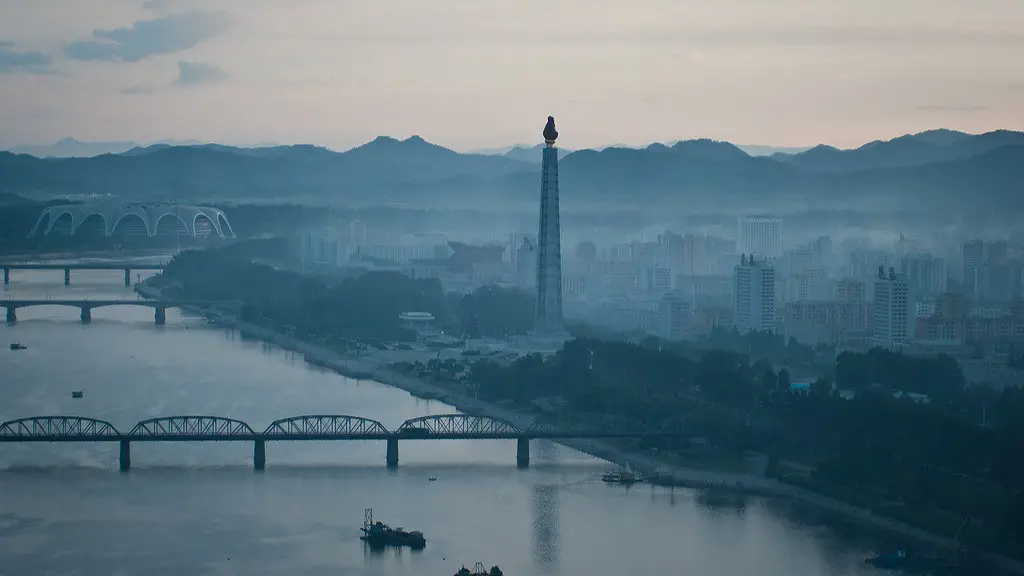Understanding the Kim Regime
A multitude of people across the world have voiced out a desire to invade North Korea. This is a consequence of the volatile nature of the Kim regime and its nuclear program, as well as its disregard for international laws and human rights. Though Kim Jong Un is often seen by the public eye as an unpredictable, dangerous oppressor, it is worth understanding the context under which he leads. North Korea is the world’s most isolated economy with its government heavily controlling the flow of information, restricting foreign trade and stifling any foreign influence. It is also important to remember that North Korea is a player in East Asian geopolitics, wherein a complex network of interstate and intrastate relations governs the international situation.
United Nations Sanctions
Though the movement to invade is gaining steam, there still remain viable alternatives to invading North Korea. In response to North Korea’s nuclear tests and long-range ballistic missile launches, the United Nations has stepped in and passed series of sanctions ranging from trade to banking. The UN’s goal through these sanctions are to significantly reduce the trade and other economic activities in North Korea, in order to ultimately inspire change.
The UN sanctions on North Korea include a cap on oil imports, a ban on textile exports, restrictions on North Korean diplomats and workers, suspension of the joint venture projects with North Korea, and more recently, a ban on North Korean exports of coal, iron, iron ore, seafood, lead, and lead ore. The latest UN list of sanctions (which is currently expected to be the toughest yet), entails banning North Korean imports of oil and natural gas, banning foreign investment in North Korea, and a global asset freeze and travel ban on Kim Jong Un. Though these sanctions have been relatively successful, it is hard to tell whether they have led to any tangible internal shift in regards to the regime’s nuclear ambitions.
Risks of an Invasion
Though a small portion of the population may see the military option as the only one viable, a majority of experts and government officials are still skeptical of the wisdom of invading North Korea. To begin with, it is difficult to craft an action plan when the current state of awareness regarding the internal workings of the North Korean state is still so limited. On a geo-strategic level, an invasion would mean military contact with China and Russia, who would most likely offer hostile resistance to any such attack. Furthermore, regime change in North Korea would also not provide an immediate solution to North Korea’s nuclear issue, as the North Korean military would still be armed with nuclear weaponry.
The costs of actualizing and carrying out an invasion plan would also be tremendous. Not only would North Korea respond with the use of conventional weapons, it could also deploy chemical weapons, with millions of lives at stake. Even if the military operation itself would be successful, it is likely that the resulting regime would be even more oppressive and inevitably lead to a backlash of a different kind.
Formulating a Diplomatic Solution
At the moment, it is clear that the best solution towards solving the North Korean crisis is still diplomacy; it requires the joint effort of all stakeholders and no single nation can take the role of world police in this geopolitical quagmire. Diplomacy and negotiations alone could provide North Korea with the security assurances it needs and in exchange, North Korea could deactivate its existing nuclear arsenal, stop its nuclear and ballistic missile tests, and cooperate with the implementation of the UN sanctions. As part of the diplomatic efforts, the international community can also work to ensure integration and open up economic opportunities for North Korea in order to secure a lasting peace.
Role of China
The role of China in solving this crisis is an important yet often overlooked one, as it has already been an economic and diplomatic supporter of North Korea. China has been an unwilling participant in this crisis, having a hard time walking the narrow line between its economic and strategic partnerships with North Korea, and its security interests to ensure a non-nuclear Korean Peninsula. Thus far, it is China that has been intervening on behalf of North Korea in diplomatic talks and UN negotiations over North Korea’s nuclear weapon and ballistic missile tests.
The Chinese government has gone as far as introducing the concept of “freeze for freeze”, which involves North Korea freezing its nuclear and ballistic activities in exchange for the US and South Korea halting military exercises in the region. Though this proposal has yet to be accepted by the US, it does provide another possible avenue for diplomacy to take over the use of military forces.
US-South Korean Alliance
The US and South Korea have been extremely vocal in their shared mission of ensuring that North Korea does not obtain nuclear weapons. US President Donald Trump and South Korean President Moon Jae-in both issued joint declarations stating that the two nations are “committed to the denuclearization of the Korean Peninsula in a peaceful manner” and are both “determined to strengthen their enduring alliance” to ensure peace and security in the region.
In line with this commitment, the US and South Korea held joint military exercises known as the “Foal Eagle” and “Key Resolve” exercises in March of this year, which involved tens of thousands of troops from both countries with war simulations to prepare for potential conflicts with North Korea. These exercises were seen as an expression of the two countries’ commitment to stability in the region and act as a visible reminder of the alliance’s power and commitment to preventing nuclear proliferation in North Korea.
Politics of Sanctions
Though the implementation of UN sanctions have worked to some degree, it is still difficult to discern the specific effects that they have had on North Korea. Former US Ambassador Susan Rice has argued that the real effects of a sanction come not from its implementation, but from its politics: the international community should take the necessary steps to further unite on the issue and enforce a singular stance in order to fuel diplomatic talks and maximize the effectiveness of the sanctions.
Moreover, if the international community is to be unified, it must also be relentless in holding North Korea accountable for any violations, and respond to them through the imposition of more rigorous sanctions. This is a process that must be consistent and enduring, lest North Korea once again resume nuclear developments.
Restricting The Regime
For an effective diplomatic approach to resolving this crisis, the international community must leverage both negotiations and sanctions in tandem. As such, negotiations must be tied to tangible results in the form of specific steps towards denuclearization, and sanctions must be multilaterally enforced in order to maximize the economic and political pressure on the internal activities of the Kim regime.
The sanctions regime should also be targeted enough to cripple the Pyongyang’s ability to fund its nuclear and ballistic missile development, while also not lead to severe humanitarian crises in North Korea. Further, it would be wise to ensure that any sanctions do not disproportionately target average North Koreans, as this could lead to famine, economic downfall, and even civil unrest.
Intelligence Sharing
Having up-to-date intelligence on North Korean nuclear and ballistic missile tests is essential to any diplomatic solution. As such, the global community must improve their coordination and information sharing on this issue, as this could help to significantly reduce the chances of a destabilizing war and even help to maximize the effectiveness of potential military responses in the case of a contingency.
On an international level, nations could share more intelligence through organizations like the European Union and the North Atlantic Treaty Organization (NATO). Both the EU and NATO are currently working to expand the development of intelligence sharing capabilities, but more must be done to ensure that all members of the international community are aware of the situation, and have access to accurate and timely information.
Human Rights Abuses
For any diplomatic solution to embrace any prospects of success, the human rights abuses by the Kim Regime must also be taken into account. The UN has already condemned the human rights records of North Korea, but only international action can truly ensure accountability to the North Korean government.
One way to apply pressure, other than economic sanctions, is through the international court of justice (ICJ). A number of lawsuits that have pressed charges against North Korea for alleged human rights abuses are currently working their way up the chain of courts. Victories in these cases could further delegitimize the Kim regime and put pressure on the North Korean leadership to abide by international law and human rights conventions.
Challenges of Change
Change, though hoped for and often sought, can also be slow and arduous. As the state of North Korea and its nuclear ambitions remain in flux, the international community must continue to uphold the existing sanctions, pursue diplomatic talks and intelligence sharing, and increase pressure on the Kim regime through measures such as human rights laws and multilateral economic sanctions.
Ultimately, success in the form of long-term stability and peace will only come when a combination of peaceful diplomatic measures and economic opportunities are implemented, so that the future of a nuclear free North Korea has a chance of coming to fruition.


